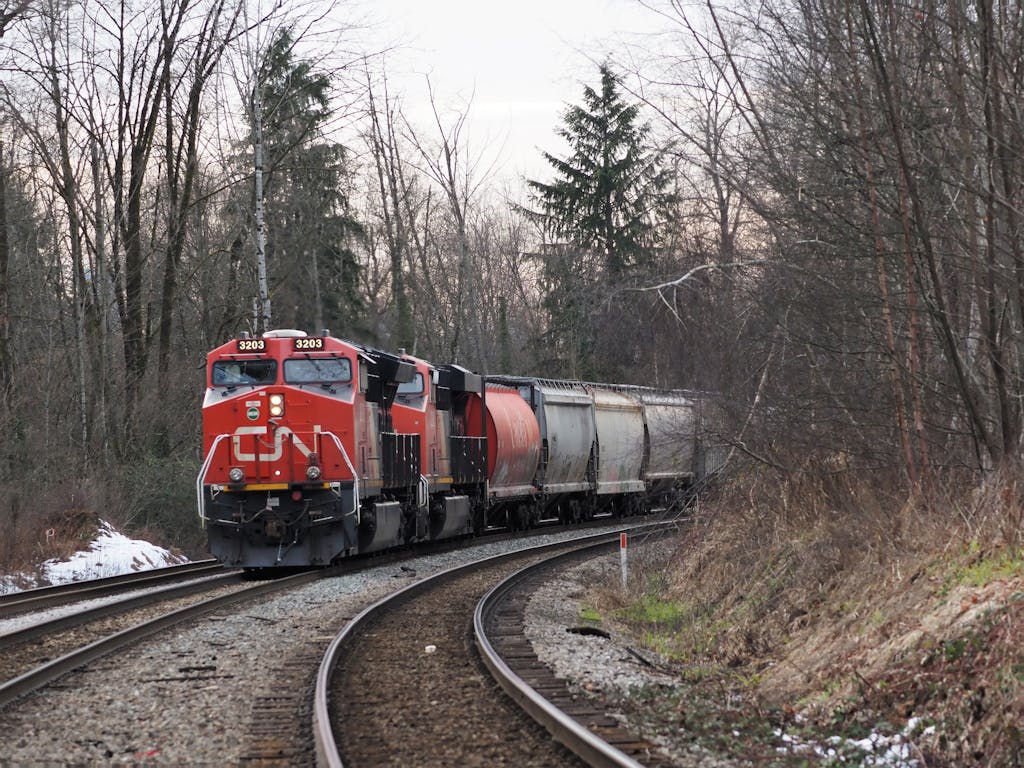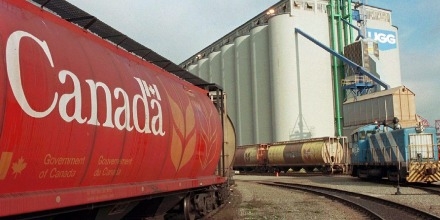The entire agriculture community is anxiously waiting for the 25 per cent U.S. tariffs on Canadian goods.
U.S. Press Secretary Karoline Leavitt says President Donald Trump will impose the 25 per cent tariffs on Canada and Mexico on Saturday and a 10 per cent tariff on goods from China the same day. However there was no word on whether there would be exemptions to the measures.
From the perspective of the U.S., the tariffs are designed to be conditional – if Canada and Mexico address issues such as illegal drugs and illegal immigration to the American’s satisfaction, the tariffs won’t be implemented, but if not, they’ll take effect Saturday.
A Reuters report cited multiple sources that U.S. President Donald was thinking about pushing the effective date further to March 1st, but Leavitt said that report is “false” and the Trump administration will move forward on the tariffs.
It was the talk of the Saskatchewan Beef Industry Conference in Saskatoon on Thursday.
“The impacts aren’t just going to be on Canada – they’re going to be on our whole integrated North American beef industry that’s very competitive and the inputs to U.S. plants and feedlots and other things will be made less competitive so that’s an impact on Americans,” said Ryder Lee, Chair of the Canadian Cattle Association. “It’s those Americans that will tell their elected leaders about that and working on that impact, so that’s a big part. We’ve commissioned a study to look at the impacts so that our government can understand what that will be and talk to them about here’s what some of the fallout we see if this does come to be, but it’s such an unknown future.”
“Fat steer prices are four thousand dollars and you’re looking at U.S. importers that have to pony up an extra 25 per cent…on those steers, it’s going to have a major impact on Canadian producers but also on the U.S. industry,” said Will Lowe, Chair of the National Cattle Feeders Association, citing Washington state as an example of a place that relies on Canadian cattle, as plants rely on getting 30 per cent of their slaughter cattle from Canada. “If they don’t get that 30 per cent number and they’re running their plants at 65 to 70 per cent capacity, there’s going to be some major business implications for those packing plants.” Lowe added.
Tariffs will be the number one topic of discussion when the largest US cattle producer organization – the National Cattlemen’s Beef Association – starts its annual convention Monday in San Antonio, Texas. A Canadian delegation will be there lobbying, the message will largely depend on what happens Saturday.
Trump told reporters at the White house Thursday night, he hadn’t decided if Canadian oil and gas will be on the tariff list. There is concern that a tariff on oil and gas coming, primarily from Alberta, could mean a hike of 70 cents a gallon at the pumps in the states. The U.S. imports about 4 million barrels of oil from Canada each year at a discount to other world oil prices.
Alberta Premier Danielle Smith told reporters late this week, everything that can be done, should be done to avoid a tariff war. Smith cited Trump’s trade spat with Columbia, where he threatened tariffs on the South American country if they didn’t bring back deported migrants, as an example of what could happen to Canada if Trump’s demands aren’t met. The U.S. then backed off once Columbia agreed to bring in the deportees.
“I think that should be a bit of a guide post to what it is that the President is looking for,” Smith said. “If his senior trade person says ‘be serious about the border’, let’s be serious about the border and then let’s see if that manages to avoid tariffs – I don’t want to talk about retaliation, I want to talk about making sure we don’t have to have that discussion because we don’t have tariffs at all.”
“Pulling together perspectives from industries from across different parts of the country to make sure that anything we do will be fair right across the country, that all Canadians will share in the job of standing up for our interests and, quite frankly, standing up to defend the most successful trading relationship in the world.” said Prime Minister Justin Trudeau of potential trade retaliation.
The federal government has a three-round retaliation planned, which would start by singling out a small list of American-made consumer products such as Kentucky bourbon and Florida orange juice. This targeting would be followed by tariffs on a longer list of U.S. goods worth $37 billion, and then if needed, Canada would hit an additional $110 billion in manufacturing and other products with trade action.
Trudeau says Canada is introducing improved border control measures but notes that less than one percent of fentanyl and illegal immigrants going into the US have been coming from Canada.
(With files from Neil Billinger, CJWW Saskatoon, Dean Thorpe, CFCW Edmonton)



